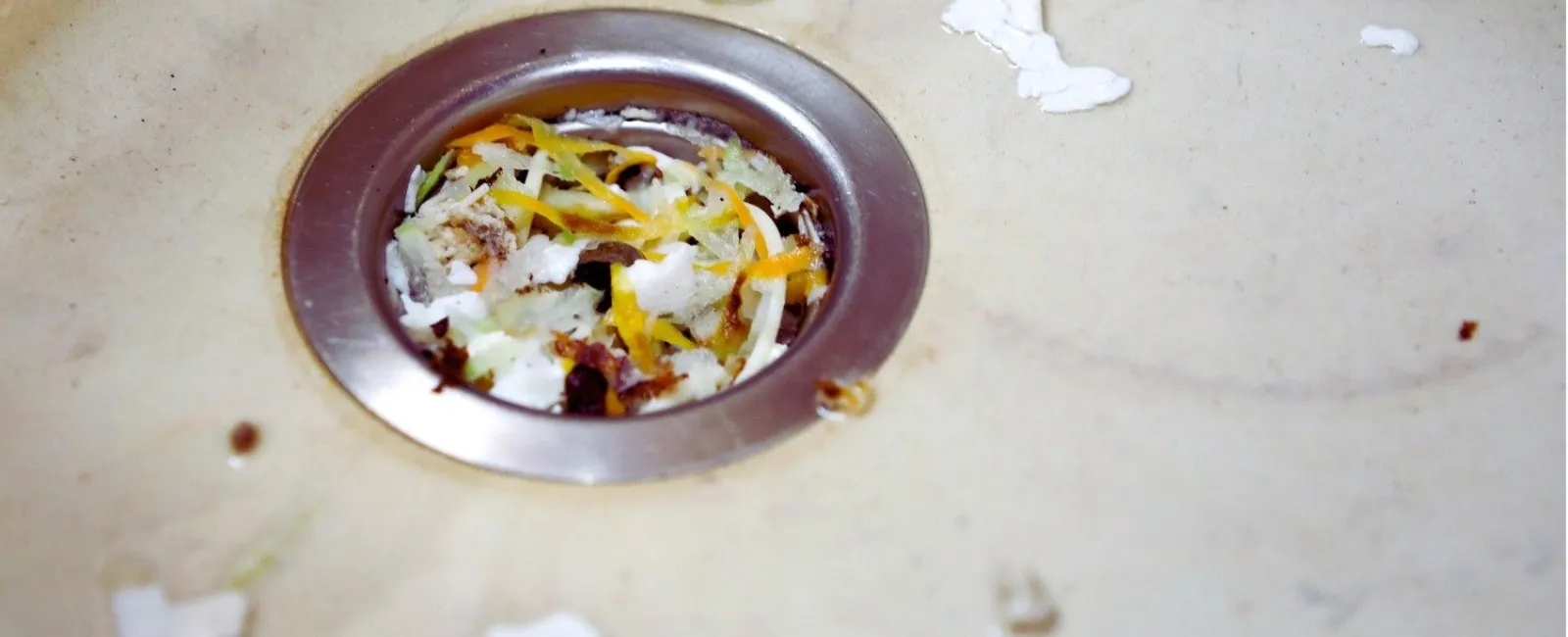July 16, 2025
At Dalmatian Plumbing in Roswell, we get calls every week from homeowners struggling with clogs caused by everyday items that were never meant to go down the drain. Understanding the do's and don'ts of kitchen plumbing can save you hundreds, if not thousands, of dollars in repairs.
Can Coffee Grounds Go Down the Sink?
Coffee grounds should not go down the sink, with or without a garbage disposal. While they may seem harmless, coffee grounds clump together and create dense blockages in your plumbing.
In fact, coffee is often on every Roswell plumber's list of what not to put in a garbage disposal. Over time, these grounds can cause foul odors, slow drainage, and complete clogs. It's better to compost coffee grounds or throw them in the trash.
Can Butter Go Down the Drain?
The short answer is no. Butter should never go down the drain, even if it's melted. Like other fats and oils, butter solidifies as it cools. Once it enters your pipes, it can coat the inner walls and trap other debris, eventually forming a stubborn clog.
If you use a sink without a garbage disposal, you're even more vulnerable to this problem. Without a grinding mechanism to break down solids, butter and other soft fats can stick to the pipe's interior almost immediately.
To dispose of butter properly, scrape it into the trash or compost it if your city allows.
Can Grease Go Down the Drain?
Like butter, grease should never go down the drain. Whether it's bacon grease, leftover oil from sautéing vegetables, or drippings from roasted meat, grease should never go down your kitchen sink. It pours easily when hot but quickly hardens inside your pipes.
Over time, this buildup can combine with food particles, soap scum, and even non-organic materials like hair or plastic bits. If you've ever wondered why your sink smells or drains slowly, it may be because of hidden grease.
Instead of pouring grease down the sink, let it cool in a can or jar and throw it in the trash. Some municipalities even have grease recycling programs.
Can Flour Go Down the Drain?
Another common question we hear is: Can flour go down the drain? Absolutely not. Flour mixed with water turns into a glue-like paste that sticks to pipe walls, traps food particles, and leads to serious clogs.
It's one of the most damaging materials to wash down a kitchen sink, particularly in homes that do not have garbage disposals. If you're baking or cooking with flour, always wipe out mixing bowls with a paper towel before rinsing and dispose of the excess in the trash.
Can Bleach Go Down the Drain?
Bleach is a tricky one. While small amounts of diluted bleach are sometimes used to clean drains, you should never pour bleach down the drain in large quantities or on a regular basis.
Bleach can be corrosive to pipe, especially older plumbing, and it's also dangerous if mixed with other household cleaners, as it can produce toxic fumes. Additionally, if bleach reacts with organic matter in your plumbing, it can actually worsen clogs rather than remove them.
If you're trying to freshen up your drains, opt for safer alternatives like vinegar and baking soda or call a professional plumber in Roswell.
What Not to Put Down the Drain:
Understanding what not to put down the drain is one of the easiest ways to maintain a healthy plumbing system. Here's a quick rundown of common problem items:
Fats and oils (butter, bacon grease, cooking oil)
Starches (rice, pasta, potatoes, flour)
Fibrous vegetables (celery, onion skins, corn husks)
Coffee grounds
Eggshells
Paints or solvents
Household cleaners in excess
Non-food items like paper towels or wipes
These materials either clump, expand, or bind to pipe interiors. Over time, they result in major clogs and expensive repairs.
What to Do with Food in the Sink Without a Garbage Disposal
If you don't have a garbage disposal, dealing with leftover food in the sink requires extra caution. Never push food scraps down the drain. Instead, use a sink strainer to catch food waste and empty it into the trash or compost.
When cleaning plates or pots, always wipe them with a napkin or sponge to remove grease and food particles before rinsing. This keeps your drains clear and prevents buildup.
Homes that have sinks without garbage disposals are particularly prone to plumbing issues if not properly maintained. Without mechanical grinding, every bit of food you wash down the sink has the potential to block pipes.
How to Dissolve Food Stuck in the Drain
If you're dealing with food stuck in your drain, you're probably wondering how to dissolve food stuck in a drain. While DIY methods can sometimes help, they work best for minor clogs.
Try pouring a pot of boiling water down the drain, followed by a mixture of baking soda and vinegar. Let it sit for 15 minutes before flushing with more hot water.
Avoid using chemical drain cleaners, especially in older homes or homes with septic systems. These products can damage your plumbing and often don't solve the underlying issue.
If your sink is still clogged after trying these methods, it's time to call Dalmatian Plumbing in Roswell. We'll inspect the blockage, clear the drain safely, and offer tips for avoiding future problems.
Why People Pour Salt Down the Drain
Salt is mildly abrasive and has antibacterial properties. When combined with hot water or vinegar, it can help scrub pipe walls and eliminate odors. However, salt alone won't dissolve major blockages or grease buildup.
Use this method only as light maintenance, not as a solution for serious clogs. If you're regularly pouring salt down your drain to control odors or backups, that's a sign of a deeper plumbing issue that needs professional attention.
What Happens If You Ignore These Guidelines?
Ignoring drain safety guidelines can lead to a range of problems. Over time, improperly disposed food and chemicals can cause:
Clogged pipes that slow or block water flow
Foul smells that linger in the kitchen or bathroom
Backups that flood under-sink cabinets or floors
Pipe corrosion and leaks
Higher plumbing bills from emergency calls and pipe replacements
Summary: Keep Your Pipes Clear with the Right Habits
Whether you're working with a modern garbage disposal or an older sink that doesn't have a disposal, the rules are the same: if it's not water or a small amount of soap, it probably doesn't belong in your plumbing.
Being mindful of what not to put down the drain is one of the simplest ways to extend the life of your pipes and prevent costly repairs. When in doubt, scrape it, compost it, or toss it in the trash.
Call Dalmatian Plumbing in Roswell for Drain Cleaning or Help with Clogs
If you're dealing with a clog that DIY methods can't fix, don't wait for it to get worse. At Dalmatian Plumbing, we specialize in safe, effective drain cleaning and repairs.
Our licensed plumbers know exactly how to dissolve food stuck in drains, remove grease blockages, and prevent future issues. We'll treat your home with care and get your plumbing flowing again fast.
Contact Dalmatian Plumbing today to schedule your service or inspection. Let's keep your drains clean, clear, and clog-free.





